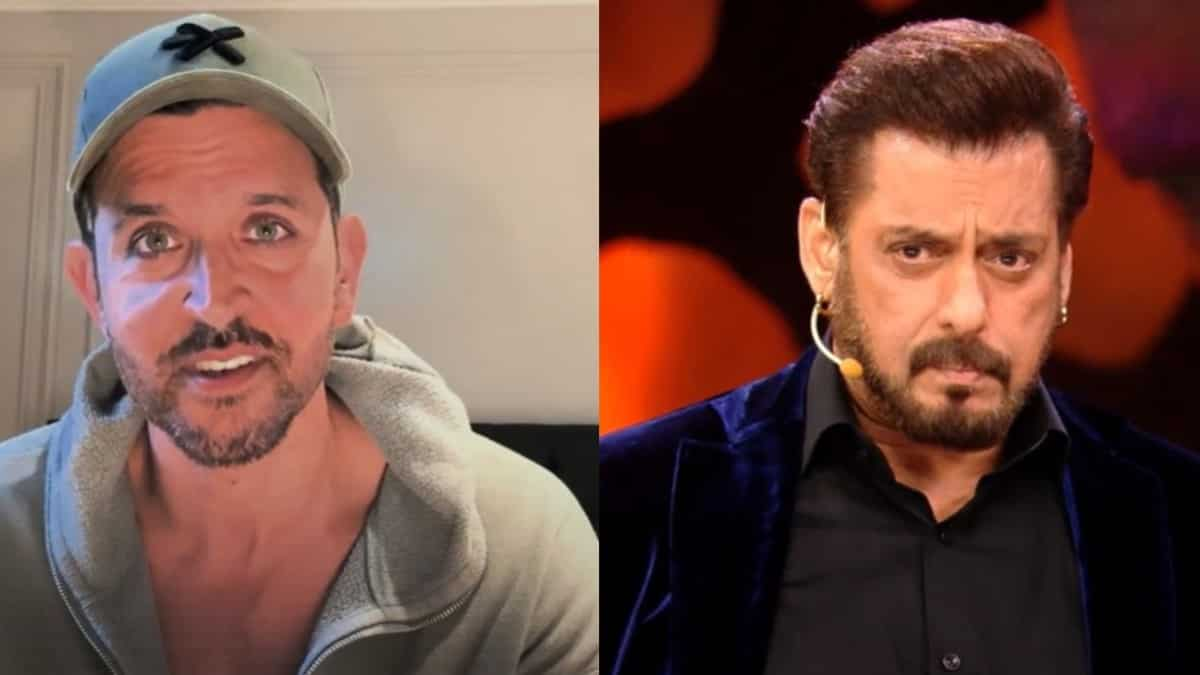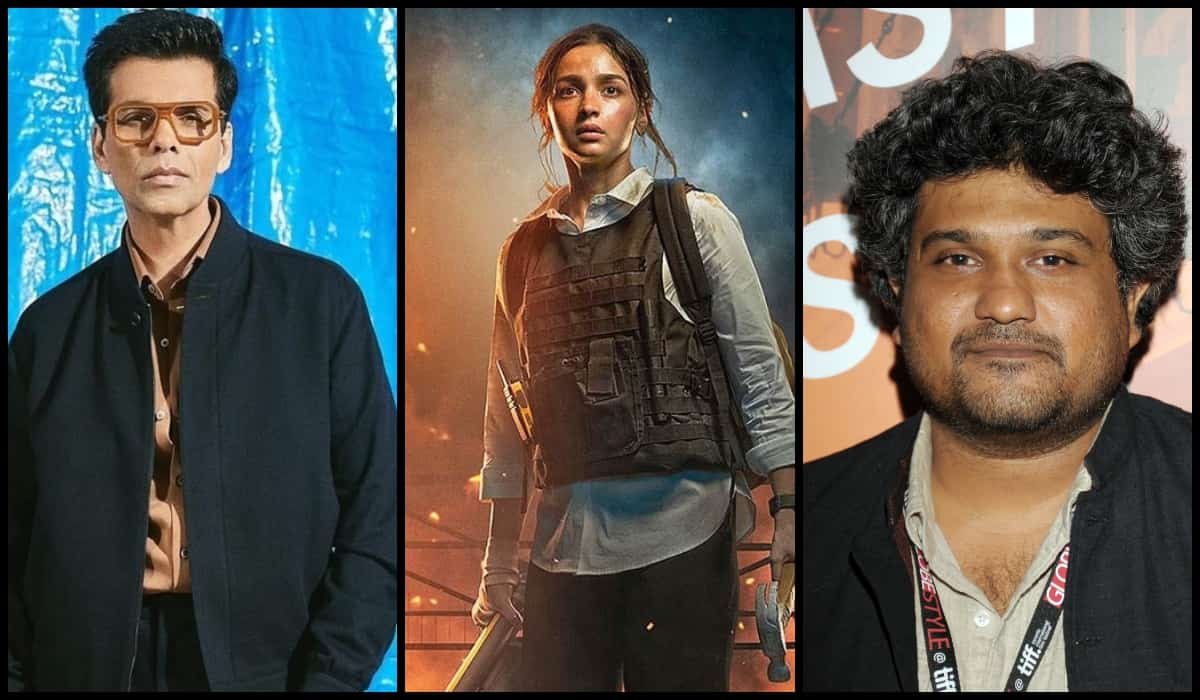
Prosenjit Chatterjee exclusive interview: ‘What is Commercial Cinema? I also want to know’
4 months ago | 43 Views
Prosenjit Chatterjee is one of the biggest stars in the Bengali film industry and one of those rare actors who has effortlessly made his way across the mainstream and parallel cinema space in the last few decades. His Friday release Ajogyo marks his 50th film with Rituparna Sengupta- a pair that has been loved by the Bengali audience for years. Prosenjit talked at length about this collaboration, his perspective on the changing language of mainstream cinema, and what still keeps him excited as an actor.
Ajogyo marks your 50th film with Rituparna Sengupta. That is a unique milestone. Was this film with Kaushik Ganguly always the one that would be the 50th? Or did it happen over time?
You see, we had done around 46 films when we used to do our regular mainstream features. In between we have not worked for around 14 years! We returned a few years later with Praktan, which was a game-changing success. After that, there was Kaushik Ganguly's film Drishtikone. So we had one thing in mind that it is our 50th film, which has not happened really! It is kind of a blessing from the audience. We had thought maybe someone like Kaushik, Shiboprosad Mukherjee- Nandita Roy, or Srijit Mukherji could do that project.
We were not waiting because we have a genuine plan that we will do films in a gap of around 3-4 years. But it was Kaushik who was very serious that, ‘I want to do it.’ But I think this was the third subject where we all came together and said, ‘Let’s lock it!' It took a long time, which Kaushik normally doesn't do when he has narrated a subject. In between he told me he would find something else… Kaushik is also a very good storyteller, so working with both me and Rituparna, also needs a good director who could take the responsibility of these two brands! I think Kaushik is one of those directors we have in Bengali cinema who can take that ‘vazan’! (laughs) He is one of the finest we have, and every actor wants to work with him.
The Prosenjit-Rituparna jodi has given so many iconic films. I remember watching Soshurbari Zindabaad and Utsab, which were released in the same year. These two films are vastly different in terms of style and scope. Both of you have balanced that so well…
I think you are the first time when a journalist has asked this question! (smiles) For me, it happened at another time also in 2003 when I had a Chokher Bali, the same year there was a Ram Lokhon. Both were superhits. I think this is something that is the magic of both of us individually. I remember when I was shooting for Soshurbari Zindabaad, Ritu was shooting for Paromitar Ek Din. We were shooting for Baba Keno Chakor, we also shot for Utsab. We were young… today I think we have so much more maturity to handle the characters and we do not do so much work. But this is also for us as actors on an individual level. Ritu did so many mainstream films as an actress and still went ahead to do a Dahan or a Paramitar Ek Din.
I was a hardcore mainstream actor, doing songs and dance numbers, and even when I went in for a Rituparno Ghosh film… I think it was a unique commitment from our side, which we tried to justify. Love and passion for Cinema were always there and for me, I was lucky that I started my career with Tapan Sinha and Tarun Mazumdar. My point is that we both have done mainstream films which were also very nice and cerebral. So, we have gone through all kinds, and today I am still working as the main lead in a very different kind of role than 13-14 years back because I was not stuck into something. Same with Ritu.

You have also worked with Kaushik Ganguly multiple times, from Drishtikone to Jyesthoputro to now Ajogyo. Tell me a little bit about the dynamic that you share with him, and the experience…
I worked with a lot of directors, young and those who were making films for this age. Kaushik somehow was not clicking, and I still remember that I received a Filmfare award and he was sitting in front of me. After receiving the award I went on stage and said, “Kaushik, I have got 3-4 Filmfare awards. Will you cast me now?” (smiles) So it was not happening but once we started with Kishore Kumar Junior to Jyesthoputro to Drishtikone… so to work with Kaushik is the best part. He is one of the finest actors in our country, I would say. He is a mind-blowing actor, and if you get a director who is also an actor then your life becomes more easier. He can make people on a different level.
The best part of working with Kaushik Ganguly is that he is the captain of the ship. One day we suddenly realized that this was going to be our last shot of the film! The basic ambiance on set is that of a family. During Ajogyo when we were shooting in Puri, there was a scene that we thought we could on the early mornings of 3-to 4 days. When we started on one day, we ended up completing the scene on that day itself and Kaushik said, ‘We can go back, two days early!’ So, he is the most relaxed director and I have not seen Kaushik on set raising his voice on anybody. The level of patience he has is out of this world. He is such a big director but I have never seen him shout at anybody, even his assistants. They are like his children. It is like a family. So, you feel good to work with such people but also, how he also knows what he wants. When we see the film we realize that we had done this or that, but what was happening at his end? He is able to create that magic, that balance.
The concept of a commercial film has changed a lot in the last few years. What do you think the new generation of the audience expects from a film now?
What is Commercial Cinema? That is what I also want to know. I always say Pather Panchali is the biggest Commercial Cinema! The film still gives revenue today. Cinema which works is commercial. We identify commercial Cinema as that which is larger than life, and yes, that commercial film has to be there. Maybe the language of Cinema has changed, and maybe the pattern of cinema has changed… but if commercial films do not work anywhere in India then the industry will not survive. Commercial Cinema gives you the strength to do something that is offbeat or which has the risk factor. If an actor gives 5 big commercial hits then he can do his next film which might not be for the larger audience. But commercial Cinema has to be there.
The language has changed. When we started the journey with especially Srijit, with Autograph, then Baishe Srabon. Shibu then did Bela Seshe and Praktan. What I am saying is this is also mainstream Cinema. What one needs to understand is that the exhibition part also has changed. So to cater to the younger audience, the college-going teenager, one needs to see that their outlet has also changed. They can watch World Cinema in their hands. So even if one wants to do mainstream films, one has to consider doing something that will cater to them also. That is happening gradually. Before the pandemic also, actors like Rajkummar Rao, Ayushmann Khurrana, and Vicky Kaushal, whose films were doing quite well. Again, Animal is also a great film. Pushpa is a good film! Shah Rukh Khan after a long time, has given these hits. It is a contribution to Indian Cinema. Shah Rukh Khan will remain Shah Rukh Khan even when he does not do one film. For us, somewhere after a long journey, we also need to give back to the industry. It becomes your responsibility.
You have been working for so long and given us so many memorable roles. Even in Bollywood, your recent work, be it a Jubilee or a Scoop, is constantly surprising. What are the factors that still motivate you to pursue acting? What excites you the most as an actor even today?
The day this will not excite me I will stop acting. Secondly, when I get up in the morning I still think that these are things that I have not done yet. That is my everyday.
What are these things?
Maybe some characters… which I am looking at. Maybe after a few years, I will do a character like the one in Jalsaghar or a Godfather. Also, my way of challenging myself is that every day I need to have one new fan, who will love my work. In the Bengali family, four generations love my work. I did Kakababu from that perspective. Now, when I meet kids at social occasions, they say, ‘Where is your crutch?’ (smiles) So for me, doing a Jubilee or a Scoop is that I want people to be surprised by me, those who do not know my work here. So, I need to be honest about that.
Ajogyo releases in theatres on June 7.
Read Also: ritwick chakraborty’s sarcastic posts irk internet trolls





















